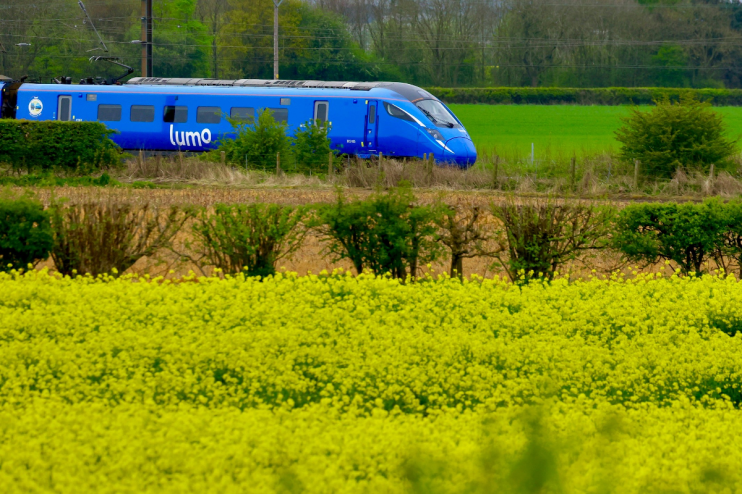Firstgroup and Virgin push back against state clampdown on open-access rail firms

Firstgroup and Virgin are combining to push back against a government clampdown on some of the last private train firms operating the UK’s railway tracks.
So-called open access is a lesser-used model in which firms shoulder commercial risk but take the entire share of any profit. It is viewed as a success story by many in the industry for its ability to boost competition, stimulate demand, and bring down fares.
Since Firstgroup’s subsidiary Lumo launched in 2021, around 6m more passenger journeys have taken place on the East Coast Mainline than when it was operated solely by LNER.
But services such as Lumo and Hull Trains are facing greater restrictions under Labour’s new Transport Secretary, Heidi Alexander, who has ordered the regulator, the Office of Rail and Road (ORR), to take a sterner stance when approving applications for new routes.
In a letter to ORR chair Declan Collier earlier this month, Alexander wrote: “There is a balance to be struck to ensure the benefits provided by open access operators outweigh the impacts they have on taxpayers and the ability to operate the network efficiently … such as the level of revenue they can abstract from contracted services and the associated implications for taxpayers.
“I wish to see the impacts on the taxpayer and … potential congestion on the network given primacy when considering open access applications,” she said.
Industry groups have warned open access services would “wither on the vine” as a result, with Alexader’s approach marking a shift away from what Labour unveiled as part of its sweeping reform of the UK’s railways.
Firstgroup is launching a new report into the benefits of open access at an event in London on Monday evening.
It sets out the economic case for how open access can grow the entire rail network, detailing dozens of places which would benefit from additional services . The report also calls for open access bids to be accelerated to meet market demand, deliver environmental benefits and unlock investment.
“Data demonstrates open access grows the railway overall,” Steve Montgomery, Managing Director at First Rail, said.
“By offering competitive fares at alternative times and stopping at under-served destinations, open access inspires more people to use trains rather than cars and planes.
The report from the UK’s biggest transport company comes following a slew of bids for new open-access routes in recent years, many of which have yet to be approved.
Arriva-owned Grand Union last year received the green light from the Office of Rail and Road (ORR) for a new service between London and Scotland.
Sir Richard Branson is also looking to revive Virgin Trains on the West Coast Main Line, more than five years after it lost the franchise.
A spokesperson said: “Virgin believes the case for open access is strong – where healthy competition exists on long distance routes, significant growth has been delivered by offering choice, additional capacity and value for money which benefits customers and taxpayers alike.
“Virgin wants genuine open access operators to be supported to inject new life into the lines which need it most.”